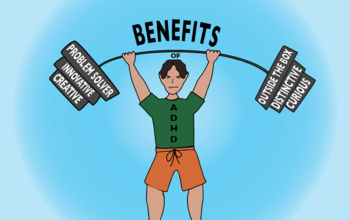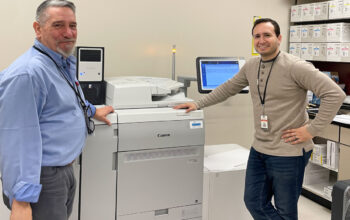Marcus Hijkoop
Features Editor
Junior Alex Smith* gets up each morning and ignores the familiar cereal box on the kitchen counter top, claiming either lack of appetite or time. Instead, Alex clambers into a 2008 Jeep Wrangler and heads to Tony’s Deli in town to buy the appropriately named ‘High School Breakfast Sandwich’ for upwards of five dollars (including tax and commonly misplaced change). To compensate for a night with little sleep, Alex then visits Zumbach’s Gourmet Coffee across the road to purchase a similarly priced caffeine-boost, and heads to school.
After four class periods, Alex and three friends routinely jump into two separate vehicles during their triple-lunch and race to Chipotle Mexican Grill in Darien. There, Alex buys a steak burrito and soda for ten dollars. Stomach full, Alex drives back to school, stopping only at a Mobil gas station to charge sixty dollars worth of gas onto Mr. or Mrs. Smith’s credit card.
Had Alex been born into a neighboring town, such as Stamford or Norwalk, breakfast may have been one dollar worth of cereal and fifty cents worth of instant coffee. Alex and classmates may have taken the school bus every day at no cost, and eaten a hot or packed lunch for less than four dollars. However, living in New Canaan, Alex and a large number of students spend up to two hundred dollars per week on gas and food alone. Over the same period of time, a high school student from a neighboring town may only consume forty dollars worth.
According to Bloomberg Businessweek’s study, America’s Richest Zip Codes 2011, New Canaan tops any other Connecticut town in terms of average household income. Ranked nineteenth nationally, 06840 boasts an average income of $277,250 and is closely followed by Darien in thirty-sixth place. But how much of that money is going straight into the pockets of high school students?
While students had trouble finding an exact number, most agreed that the amount of money New Canaan students have access to is far greater than the average American. “The spending ability of New Canaan students is definitely much greater than the majority of the country,” senior Annie Horstmeyer said. “New Canaan youth probably spend as much in a week as a kid from somewhere else in the country would spend over the course of a year.”
Sophomore Brendan Hill agreed, alluding to how many students have access to so much money. “We spend more than most of the country because we are in such a wealthy town,” he said. “Students have a large amount of money to spend, however much their parents are willing to give them. A lot of students rely solely on their parents for money; not many have jobs at all.”
Though the New Canaan student body as a whole typically has more money to spend than in other towns, students noted the varying situations for families with different incomes and values. “Some people just have their parents’ credit card but others don’t have as much money to spend,” freshman Marykate Conron said. “My sister actually has a job so she doesn’t get an allowance, but I just use my mom’s credit card.”
According to sophomore Tom Johnson*, some students also receive bonuses as rewards for good behavior and academic achievements. “One of my good friends actually made a thousand dollars from his parents by making high honors last quarter,” he said.
While some students may save their money, many believe that their peers spend money unnecessarily. “Kids in this town have a plethora of money available to them and therefore can spend it on things they don’t need,” junior Abbie Stone said. “Students spend their money on all of the above – food, coffee, clothes, gas, phones, cameras – but probably the majority on food and coffee.”
Senior Kevin Dwyer agreed and admitted to spending large amounts of money on food himself. “Most upperclassmen have cars and go off campus every day and spend ninety percent of their money on gas and food,” he said. “At the end of my work year in November I had four thousand dollars in my bank and now I have two and a half thousand. I probably spent one thousand on food alone.”
However, Annie said she believes that simply living in New Canaan requires many students to spend more than they would in other towns. “Living in New Canaan forces us to spend so much money,” she said. “Gas prices are much higher in New Canaan as well as food and clothing prices.”
Whether New Canaan students are forced to spend more or not, most students agree that the majority of their classmates do not spend their money appropriately. Many also said that students who have given allowances and not earned salaries do not deserve the money they spend. “As those students who have the most money usually get it from their family and do not need to work for it, they do not deserve the money they have,” Annie said. “These wealthy students also spend their money frivolously and unwisely.”
“I personally have a job, but I think that most students probably get their money through allowances,” senior Scott Philipson said. “The majority of kids in New Canaan get too much allowance.
Though most students recognize that their peers are spending inappropriately, many admit to carefree spending themselves and claim that if you have the money, you might as well spend it. According to junior Charlie Freyre, however, careless spending in high school may have further serious implications later on in life. “Reckless spending is a habit that can last longer than the time you spend with sympathetic parents’ extra cash,” he said. “Unfortunately, most kids from New Canaan don’t realize that until college, or even later.”
*Name has been changed




